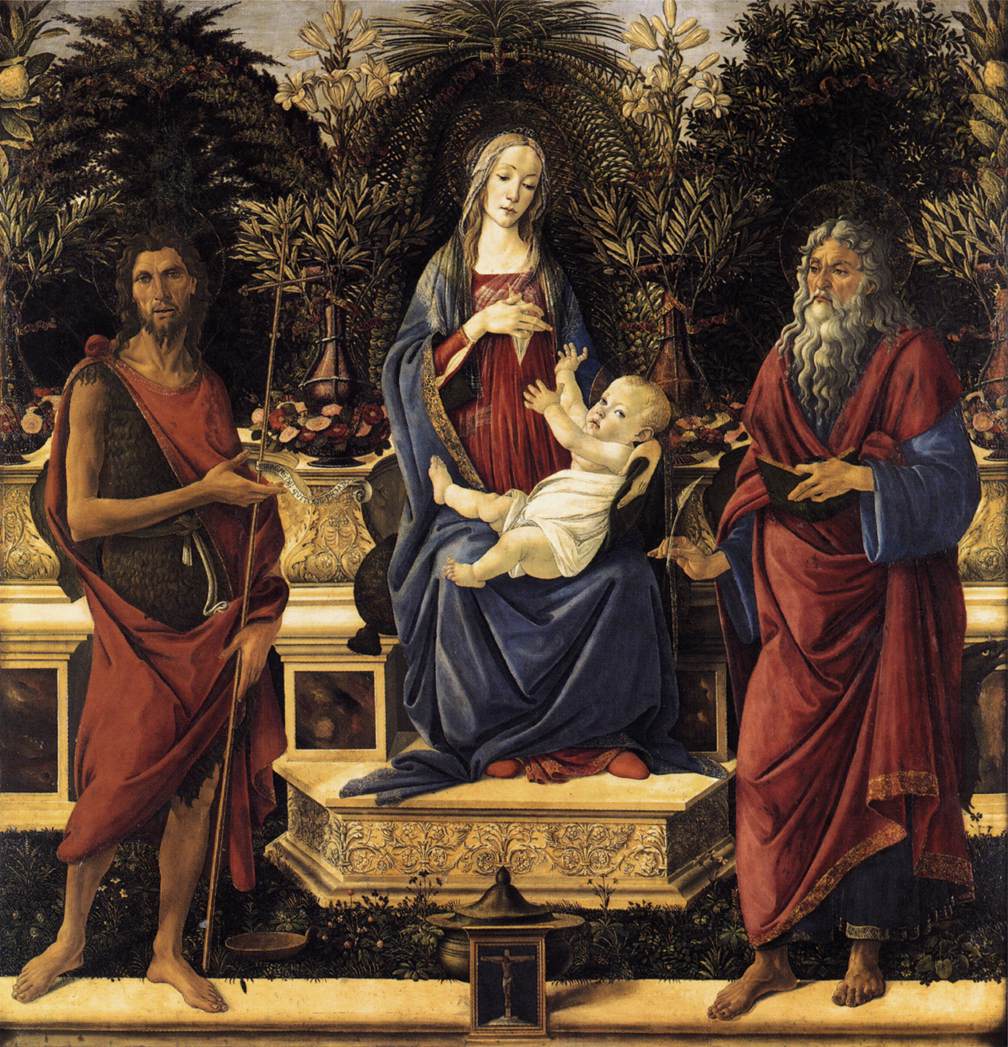Description
The painting "The Virgin and Child Enthroned" (Bardi Altarpiece) by Sandro Botticelli is a masterpiece of the Italian Renaissance noted for its refined and elegant artistic style, its harmonious and balanced composition, and its masterful use of color and light.
The painting depicts the Virgin Mary seated on a throne with the Child Jesus on her lap, surrounded by angels and saints. The composition is symmetrical and ordered, with the Virgin and Child in the center and the secondary characters arranged in two groups on either side.
Botticelli's artistic style is characterized by his attention to detail and his ability to create a sense of movement and life in his figures. The characters have an idealized beauty and a serene and contemplative expression that reflects the spirituality and devotion of the Renaissance.
The use of color in the painting is particularly notable, with soft and delicate tones that create an atmosphere of peace and serenity. The colors complement and balance each other, creating a sense of harmony and balance.
The history of the painting is interesting, as it was commissioned by the Bardi family for their private chapel in the church of San Spirito in Florence. The painting was then transferred to the church of Santa Maria degli Angeli and finally to the Uffizi museum in Florence, where it is currently located.
One of the lesser known aspects of the painting is that Botticelli used innovative techniques to create the feeling of depth and space in the composition. He used the sfumato technique, which consists of blurring the edges of the figures to create a sense of atmosphere and depth.
In short, "The Virgin and Child Enthroned" (Bardi Altarpiece) is an Italian Renaissance masterpiece noted for its refined artistic style, harmonious and balanced composition, masterful use of color and light, and interesting and meaningful story. .

